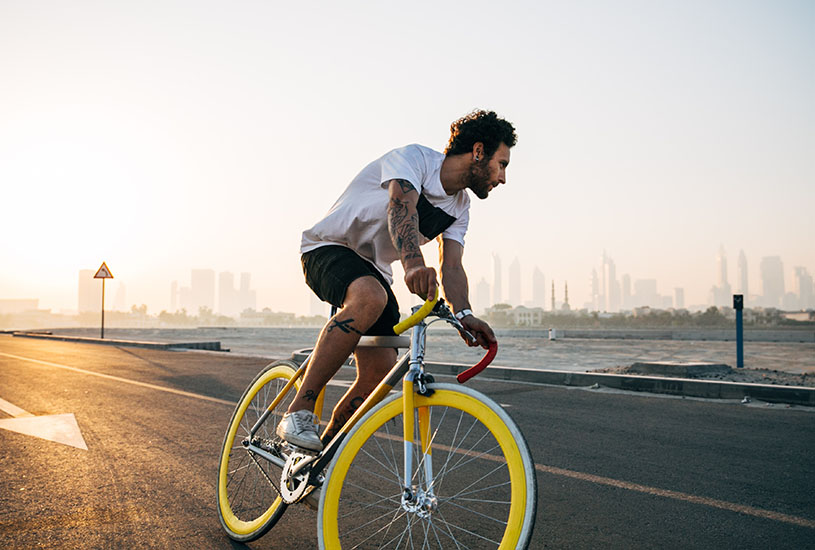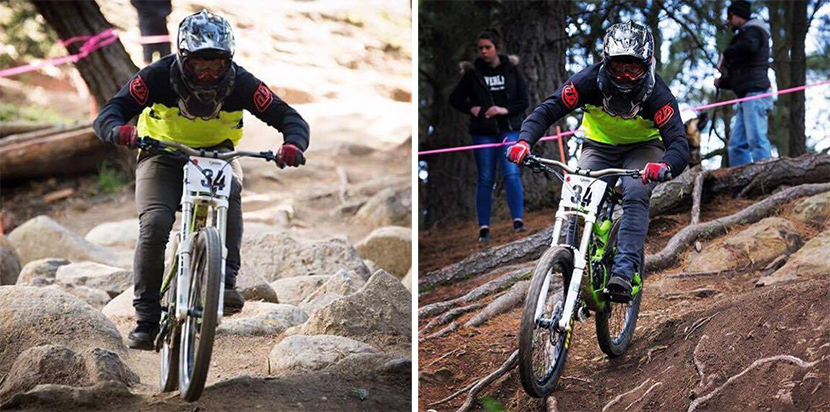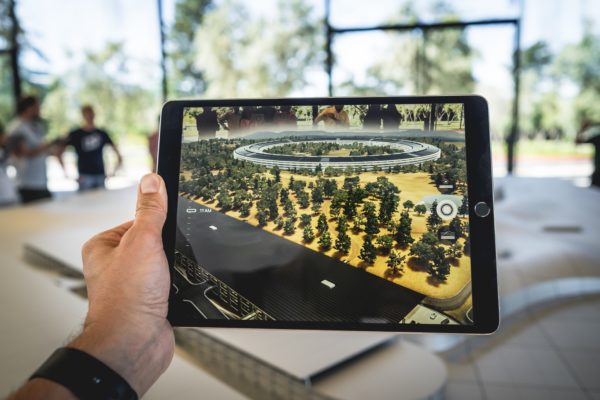Conversations with his father about applying engineering principles to bike riding provided the spark of an entrepreneurial idea for a Deakin engineering graduate.
Champion BMX rider Michael Williams was still in high school when he came up with an idea for a device to allow cyclists to change gears without pedalling. Now, with the help of a $10,000 grant from Deakin University’s SPARK Deakin Accelerator program for budding entrepreneurs, he is turning the idea into reality.
Mr Williams, who completed a Bachelor of Civil Engineering (Honours) at Deakin’s Waurn Ponds Campus earlier this year, developed a passion for bike riding at the age of three. He has since ridden in 14 State and eight Australian National BMX titles and competed in multiple World Championship and World Cup events. He has also recently taken up competitive mountain bike riding.
All those hours of pedalling downhill and over obstacles made him realise there had to be a safer and more efficient way to change gears while racing.
“From a downhill racer’s perspective, being in the correct gear is important for speed and also for safety. What we’re doing at the moment is pedalling over sections of track that are potentially dangerous to pedal on because we have to, in order to shift gears,” Mr Williams said.
[testimonial_text]Shifting gears on a bike is sequential – the rider has to pedal through each one to get to a higher or lower gear. It’s not like a car, where you can go from first gear straight to fifth.[/testimonial_text]
[testimonial_picture name=”Mr Michael Williams” details=”Deakin School of Engineering Graduate”]
 [/testimonial_picture]
[/testimonial_picture]“If you’re in a heavy gear and you’re braking towards something and want to change to a lighter gear, you have to pedal in order to come down sequentially through the gears. That’s just inefficient. It’s like a car driver approaching a red light in fifth gear and beginning to brake but having to accelerate at the same time in order to change gears. As an engineer, it just doesn’t make sense to me.”
As a Year 12 student at Warrnambool College, Mr Williams discussed the idea for his revolutionary transmission device with his father, also an engineer and avid bike rider, and worked on concept designs during Visual Communications classes.
However, it wasn’t until the time came to begin his Honours thesis that Mr Williams was able to fine-tune his idea and develop prototypes using the world-leading equipment and facilities at Deakin’s Centre for Advanced Design in Engineering Training (CADET).
“I thought I might as well pursue this idea that I had way back in 2011 and see if it was actually possible to make it work,” Mr Williams said.
“I approached Dr Paul Collins, a senior lecturer in the School of Engineering with an interest in product development and sports technology, who is also a keen bike rider, to be my supervisor and it all went from there.
“There are existing products on the market that do a similar job, but in my opinion they haven’t taken off because they’re either too heavy, too expensive or aren’t ergonomic enough,” he explained.
Mr Williams said his device ticks one of the biggest boxes in competitive bike riding – faster lap times.
“During testing, we found we could decrease lap times on average by about four per cent, or about seven seconds,” he said. “In a race, that could be the difference between first and 30th place.”
Mr Williams applied for the SPARK Deakin Accelerator Program on the suggestion of Dr Collins and is among six winners in the 2017 round. As part of the program, the winners are provided with one-on-mentorship, access to co-working spaces in Melbourne CBD and Geelong, and $10,000 funding.
Deakin School of Engineering graduate Michael Williams
SPARK Deakin Project Manager Daizy Maan said SPARK Deakin was designed as “an outlet for creative talent to collaborate together and take ideas to market” and a way to support Deakin’s emerging start-up network.
“We want to invite everyone, teach the curious, empower the best, and create the future with SPARK through a program designed for students, staff, and alumni of Deakin University – a program with a strong focus on building connections with the entrepreneurial community outside of Deakin,” Ms Maan said.
For Mr Williams, who is currently working at VicRoads as a Project Engineering Coordinator and Relationship Manager, being part of SPARK Deakin means his dream of commercialising the product next year is one step closer to coming true.
“Many of the methods and procedures we have at Deakin are world class and a lot of them aren’t available to commercial bike companies,” Mr Williams said.
“I think the machining capabilities and potential at CADET give me a real edge over the traditional commercial market.”
The six start-up winners in the 2017 SPARK Deakin’s 2017 Accelerator program – founded by current Deakin University students, alumni, and staff members – were selected from more than 40 potential contenders through months of preparation, workshops and training. As well as Mr Williams’ transmission device, they include:
- Weights for Mates: A mental health promotion service and prevention program, aimed at creating an environment for young males to use physical training to break down masculine norms and encourage positive decision-making.
- Spelloo: An online game designed to be used as a study tool by English as a Second Language students, based on academic research on learning and development.
- TeloTalent: A data-based video interviewing platform that solves the problem of inefficient and inconsistent first round interviews. TeloTalent also provides methods for companies to better understand their employees and fix cultural issues.
- Vollie: A new style of skills-based remote volunteering, with exclusively online projects so people can support the causes they care about with their skills and experience from anywhere in the world, at any time.
- OrderHub: Provides high quality, integrated food ordering solutions to the hospitality industry through three core products – Point of Sale, branded mobile apps and branded websites.
Published by Deakin Research on 9 November 2017




